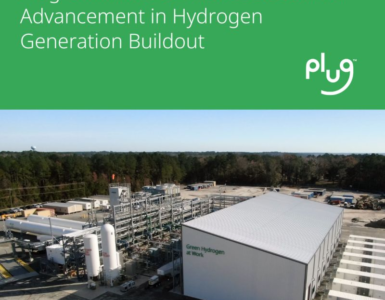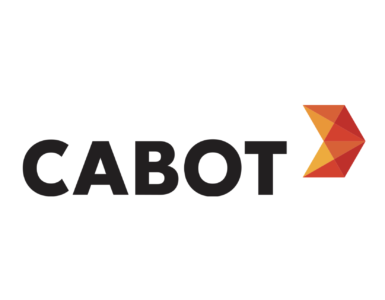Greece is becoming the new hub for hydrogen in Europe – Hydrogen Europe.
It was like a bang when Prince Mohammed bin Salman assessed his country’s relationship with Greece during his joint appearance with the Greek Prime Minister Kyriakos Mitsotakis. Relations are historically and traditionally good, but now a new phase is to be heralded. Greece is to become the European hub for hydrogen.
This was new for many, surprising and seemed like a glimpse of the future. Indeed, since the announcement of the WhiteDragon project in Western Macedonia, Greece has been on the European map of hydrogen projects.
The Greek government was actively involved and achieved great success in July when two projects within the framework of the so-called ipcei (important projects of common European interest) were recognized by the European Commission in the first phase.
🔥 What about we co-host a webinar? Let's educate, captivate, and convert the hydrogen economy!
Hydrogen Central is the global go-to online magazine for the hydrogen economy, we can help you host impactful webinars that become a global reference on your topic and are an evergreen source of leads. Click here to request more details
More will follow, meanwhile top-class greek companies with a keen interest in hydrogen are bustling about in Greece, which at the same time represents the who’s who of the Greek economy. The White Dragon project and its project coordinators triggered an initial effect that brought many companies to work together for the first time and set off for new shores.
Indeed, hydrogen has the potential to transform Greece from an energy importer into a self-sufficient, energy autonomous country, with renewableenergy replacing the previously dominant fossil based energy.
This becomes very clear in Western Macedonia, where lignite is actually to be completely replaced by renewables in combination with hydrogen. Together with Portugal, Greece is one of the two European countries that have an equally high potential for windenergy and solarenergy.
In all other cases, either one or the other predominates. Greece is, so to speak, predestined and privileged.
Prince Salman has now added yet another geopolitical component: The massive imports of hydrogen from the Middle East and North Africa are to be directed to Europe via Greece.
True to the motto issued by the eu after the Ukraine war, the European Union will import 10 million tons of renewable hydrogen produced annually until 2030. From today’s perspective, this share will even increase.
The first major hydrogen projects that meet the demands of industrial production has already been launched in saudiarabia. In the north-west of the country, a region the size of Belgium has been declared an exclusive renewable and hydrogen zone, called NEOM.
Significant production volumes are expected here as of 2024, and large-scale production of renewable hydrogen will begin in 2026. In addition, there is the use of the last large gas field, which is still not explored from 2024. The Saudi government has announced that this gas field will not be used to export gas, but hydrogen.
According to Energy Minister Abdulaziz bin Salman, much of the gas from Jafurah’s $110 billion development will be used for blue or turquoise hydrogen. Jafurah is estimated to have 200 trillion cubic feet of gas and production turned into hydrogen is expected to begin in 2024.
With the help of various technologies, it is possible to split the gas in such a way that almost no co2emissions are produced, for example using pyrolysis technology. With this technology, the carbon can be obtained in its solid form and used as a raw material, for example for the infrastructure of the power lines.
Instead of pure gas, two high-quality products would be available for the European market, in which the Saudi government would like to specialize in order to achieve the long-term goals of complete decarbonization by 2060.
According to “Vision 2030”, Prince Salman’s conversion plan, photovoltaic systems with a capacity of 40 gigawatts, 16 gigawatts of wind power and solar thermal power plants with 2.7 gigawatts will be built by 2030 alone.
Additionally, the Eastern Mediterrenean bassin is well known for its rich offshore salt caverns under the sea. It is a perfect storage facility for all the hydrogen produced in the Middle East-North African region. It also would serve perfectly for a strategic hydrogen reserve for the whole EU.
The outlook for the future hydrogen economy is resolute and hopeful. However, the corresponding infrastructure must be adapted or rebuilt. Hydrogen is a gas and is best transported via pipelines. It is the cheapest way to send large volumes over long distances.
Therefore, there is no way around the EastMed project. The temporary irritation as to how the project will continue must not last, especially since the war in Ukraine has made it clear that new geostrategic developments are emerging almost in fast motion.
The TAP pipeline already planned will play a special role in Europe’s hydrogen strategy, as Commission President Ursula von der Leyen recently made clear in Azerbaijan. In the future, all roads will lead via Greece when it comes to connecting the south-eastern production potential for hydrogen.
What happens in the transition period until the pipelines are completed? Here, too, Greece, with its large merchant fleet, will play a central role. Experts agree that in the transitional phase until a stable pipeline system is developed, ammonia as a product of hydrogen and nitrogen will be the cheapest option to transport the new product.
Ammonia can be formed from hydrogen relatively easily and broken down again without emitting CO2. But what is even more important is that there are currently large customers for ammonia, especially in the chemical industry, who have previously produced it from natural gas.
You could use it immediately and thus immediately replace large parts of the fossil natural gas. It is now also up to the Greek maritime strategy to adapt quickly to this development and to make the appropriate ships available through conversion.
If the right steps are taken now, Greece will undoubtedly become one of the key hubs for hydrogen, not only in the eastern Mediterranean. Saudi Arabia has declared the country a strategic partner. That’s the starting point.
Other partner countries will be integrated into the new hydrogen economy, which is an essential prerequisite for achieving the Paris goals. However, Athens must also keep pace with the rapid development.
The early publication of a hydrogen strategy adapted to the new situation would be urgently needed. Europe relies on Greece and stands ready to support this dynamic and robust development.
Greece is becoming the new hub for hydrogen in Europe, August 2, 2022








